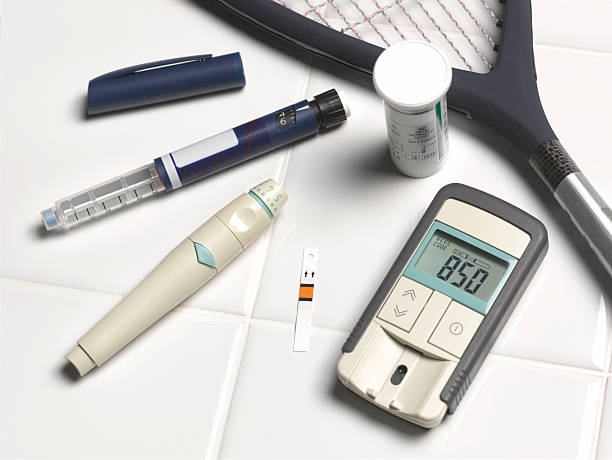
Diabetes is a slow, steady illness that can turn serious very quickly. If you have diabetes, you should prepare yourself for a diabetic emergency. In a way, you’re like a person living on a fault line who plans ahead for an earthquake. But you have an advantage: Instead of just preparing for a possible disaster, you can take steps to prevent it. Your doctor can tell you if you are at risk for a diabetic emergency. If you’re in danger, you’ll have to learn how to minimize the risks and how to respond to the worst-case scenario.
For starters, you should wear an alert bracelet or another form of I.D. that will inform medical personnel of your condition. You should also set aside a stash of extra diabetes supplies in your home in case you can’t make your regular shopping trips because of a blackout, flood, blizzard, or some other unforeseen problem.
Items you may want to consider for your emergency pack include a cooler or another cold storage container with pre-made ice for keeping insulin and other supplies in case of an electrical outage; emergency glucose to treat hypoglycemia; a spare battery for your glucose test meter; canned food and several gallons of bottled water; flashlights and extra batteries; candles and matches; and, if you take insulin, extra insulin, syringes, lancets, blood test strips, and (if necessary) insulin pump supplies, according to the association Children with Diabetes.
Diabetes: 4 Things to Look For on Food Labels
Common emergencies
Extreme high blood sugar (hyperglycemia)
Read about how to prepare for the most common diabetes emergencies:
Like everyone else with diabetes, you have days when your blood sugar is a little higher than you’d like it to be. Usually, you can bring the levels back down with a little more exercise, a little less food, or a small change in medications (as directed by a doctor). If you don’t follow your meal plan, if you don’t take your medications, if you develop an infection or another illness, or if you are recovering from surgery or some other trauma, you may develop extremely high blood sugar, also called hyperglycemia. This is a serious illness that can damage your organs or send you into a coma.
Prepare yourself: If you’re at risk for hyperglycemia — if, for instance, you’ve just had a serious operation — your doctor may recommend checking your blood sugar more often than usual. And if you’ve had ongoing high blood sugar, be sure to drink plenty of fluids. Ongoing hyperglycemia puts you in danger of dehydration as your body tries to eliminate the extra sugar in your body through urination. You should also know the symptoms of high blood sugar. When levels are only moderately high, some people might not have any symptoms at all. Others, however, may show one or more of the following signs:
- Unusual thirst
- Dry mouth
- Frequent urination
- Blurred vision
- Fatigue
- Weight loss
- Increased appetite
If your blood sugar climbs to dangerous levels, you may develop difficulty breathing, dizziness when standing, rapid weight loss, extreme drowsiness or confusion, or even unconsciousness. Call your doctor if your sugar levels climb too high or if you notice the symptoms above.
Prevent trouble: You can greatly reduce your risk of high blood sugar by






















